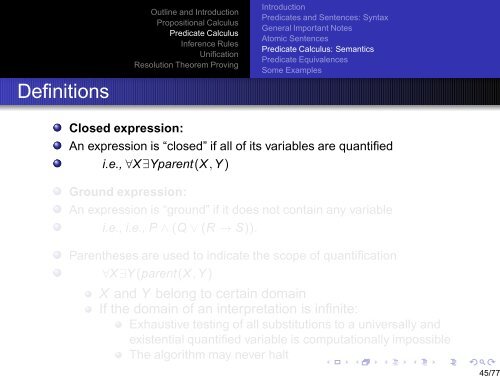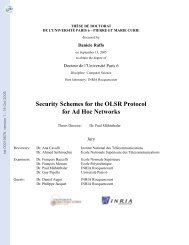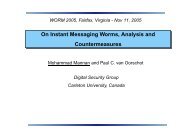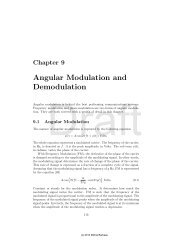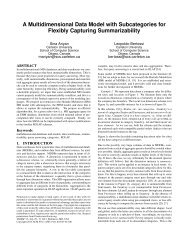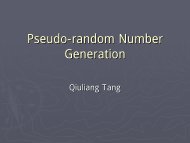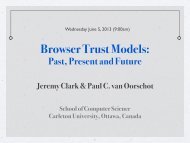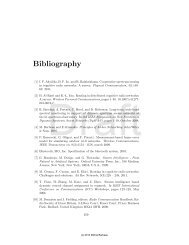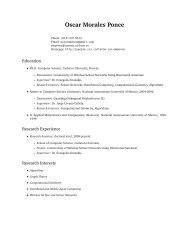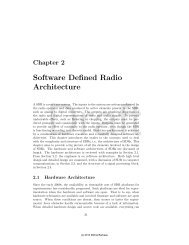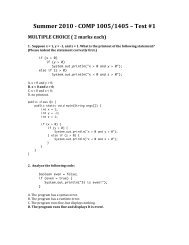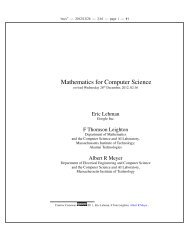Propositional and Predicate Calculus - Carleton University
Propositional and Predicate Calculus - Carleton University
Propositional and Predicate Calculus - Carleton University
Create successful ePaper yourself
Turn your PDF publications into a flip-book with our unique Google optimized e-Paper software.
Definitions<br />
Outline <strong>and</strong> Introduction<br />
<strong>Propositional</strong> <strong>Calculus</strong><br />
<strong>Predicate</strong> <strong>Calculus</strong><br />
Inference Rules<br />
Unification<br />
Resolution Theorem Proving<br />
Introduction<br />
<strong>Predicate</strong>s <strong>and</strong> Sentences: Syntax<br />
General Important Notes<br />
Atomic Sentences<br />
<strong>Predicate</strong> <strong>Calculus</strong>: Semantics<br />
<strong>Predicate</strong> Equivalences<br />
Some Examples<br />
Closed expression:<br />
An expression is “closed” if all of its variables are quantified<br />
i.e., ∀X∃Yparent(X,Y)<br />
Ground expression:<br />
An expression is “ground” if it does not contain any variable<br />
i.e., i.e., P ∧(Q ∨(R → S)).<br />
Parentheses are used to indicate the scope of quantification<br />
∀X∃Y(parent(X,Y)<br />
X <strong>and</strong> Y belong to certain domain<br />
If the domain of an interpretation is infinite:<br />
Exhaustive testing of all substitutions to a universally <strong>and</strong><br />
existential quantified variable is computationally impossible<br />
The algorithm may never halt<br />
45/77


